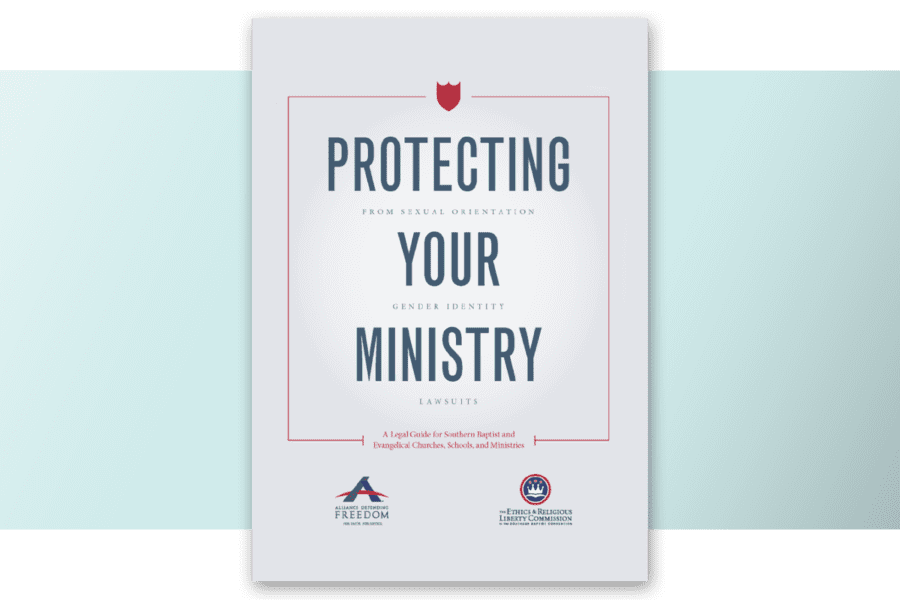In the culture, in the courts, even in casual conversation, it is increasingly obvious that we have lost sight of over 200 years of social and legal tradition that has secured our fundamental freedoms – namely, freedom of speech and religion. A new concept – that “sexual liberty” trumps religious freedom – has begun to impact churches, ministries, and Christians across this nation.
In today’s evolving legal landscape, religious institutions face unique challenges that require diligent attention to protect their mission, values, and members. Protecting Your Ministry, published by the Ethics & Religious Liberty Commission (ERLC) in partnership with Alliance Defending Freedom (ADF), is a guide designed to equip faith-based organizations with the tools necessary to uphold their religious freedom in an increasingly complex legal environment.
This e-book addresses essential issues for ministries, including religious liberty concerns, employment practices, facility usage, and organizational policies. As cultural shifts continue to impact religious organizations, there is an increasing need for pastors, ministry leaders, and administrators to understand the legal safeguards that can protect their ministry from potential threats. Protecting Your Ministry provides practical, actionable steps to help faith-based organizations proactively build a strong legal foundation that aligns with their theological beliefs.
From policy recommendations to real-life case studies, the guide emphasizes the importance of creating clear, mission-driven policies that reflect the values of the ministry. This resource also highlights the critical role of religious liberty in a diverse society and underscores the need for churches and ministries to be aware of their rights and prepared for challenges that may arise.
Whether you are a church leader, non-profit administrator, or religious school director, Protecting Your Ministry serves as a valuable resource to help you navigate today’s complex legal landscape with confidence. By understanding and implementing these best practices, you can safeguard your ministry’s ability to serve its community and fulfill its mission in a manner consistent with your beliefs.









